Navigating the Security Token Landscape in 2023
According to a study by Arca and Coalition Greenwich, it is estimated that the tokenization industry, which involves the digital representation of traditional securities, will grow significantly in the next decade. The private securities market is expected to grow from $7 trillion to $30 trillion by 2030, and 77% of capital markets participants believe that traditional securities will be digitized within the next 5–10 years. This suggests that the tokenized securities market could reach over $20 trillion by the end of the decade. In addition, equity crowdfunding capital raises saw a significant increase of 1,021% in 2021.
The Big Players are stepping in
Private equity giant KKR made headlines in September 2022 when it announced the launch of its first tokenized private equity fund, which will be offered through Securitize and tokenized on the Avalanche blockchain. The security tokens will represent economic interests in the fund, with a minimum subscription amount of $100,000, a significant reduction from the traditional minimum of $5 million. Pending a 12-month lockup period, the fund may also be listed and traded on Securitize Markets, potentially opening it up to both accredited and retail investors. The target size for the tokenized fund is estimated to be between $30-$50 million.
Alternative asset manager Hamilton Lane has also been active in the tokenization space. In March 2022, the company announced it would offer interests in its $2.2 billion Global Private Assets fund through security tokens on the Singapore-based platform ADDX, with a minimum ticket amount of $10,000. In addition, Hamilton Lane worked with Securitize to offer tokenized versions of three US-based funds, with minimum investments ranging from $25,000 to $50,000 which again significantly lowered the barriers to entry for these funds and opened up more opportunities for issuers as well as additional players.
JP Morgan’s Onyx division is a leader in the use of blockchain technology in the banking industry. One of the main drivers of this is the use of JPM Coin, a digital representation of the US dollar that is used for internal blockchain-based transactions. In addition to this, the bank has also launched a blockchain-based Repo Network, which allows for the trading of repurchase agreements (repos) with any third party that joins the syndicate. The Tokenized Collateral Network (TCN) allows for the use of traditional tokenized funds as collateral, and the bank is also involved in a number of other blockchain-based projects, including the Interbank Information Network (IIN) and a blockchain-based trade finance platform. JP Morgan is another example of the growing adoption of tokenization, as well as practical applications increasingly seen in the TradFi space outside of crypto companies, which until recently were the only front for innovation.
While JP Morgan has opted for an in-house approach, Goldman Sachs has been working with third-party enterprise solutions like Daml to tokenize and manage assets. Goldman Sachs has also partnered with HQLAx, an enterprise blockchain platform built on Corda’s R3 blockchain, which aims to serve as a global ledger for securities and repo transactions. In July 2022, Goldman Sachs and BNY Mellon completed the first-ever agency securities lending transaction using distributed ledger technology on HQLAx. Tokenization offers numerous benefits, including the ability to transfer and settle securities immediately and eliminating the risk of duplication. Its execution has proven to be invaluable for financial institutions in the future.
The rise of public bonds issuances
In the financial sector, blockchain technology has also been increasingly adopted for the issuance of public bonds. Investment banks and asset managers around the world have begun using blockchain-based platforms to streamline the process and reduce costs. In April 2019, Société Générale issued a €100 million covered bond on the Ethereum blockchain, becoming the first tokenized bond to receive credit ratings from agencies such as Fitch and Moody’s. Two years later, the bank issued a €40 million tokenized structured product on the Tezos blockchain, which was subscribed to entirely by Société Générale Assurances.
In January 2022, these tokenized products were admitted to the Luxembourg Stock Exchange’s Securities Official List, making them the first distributed ledger technology (DLT) securities on the exchange. This milestone paved the way for future DLT securities and resulted in Société Générale FORGE, the bank’s innovation startup focused on digital assets, partnering with Swiss digital asset firm Metaco for institutional-grade custodian services.
In July 2022, MakerDAO, a decentralized finance (DeFi) platform, approved a $30 million loan to Société Générale FORGE, which required the deposit of $40 million worth of the bond tokens as collateral. This marked the first time a public bond was used as collateral for a DeFi loan.
Other notable examples of blockchain-based public bond issuances include the partnership between the European Investment Bank (EIB) and Goldman Sachs. In November 2022, the EIB commissioned Goldman Sachs, Santander, and Société Générale as lead managers for the sale of a €100 million bond issuance on the Ethereum blockchain. These bonds were settled in central bank digital currency issued by the Banque de France and were offered to external investors through a syndicate group.
This issuance, known as Project Venus, was also the inaugural issuance on Goldman Sachs’ private tokenization platform, GS DAPTM. The successful offering was subscribed to by AXA Investment Managers and Union Investment and was admitted to the Luxembourg Stock Exchange Securities Official List.
HSBC has also entered the tokenization space with the development of its own bond tokenization platform, Orion. The platform will tokenize both the bond and the cash involved in the transaction, enabling an atomic swap or delivery vs payment. This innovative feature, known as DvP, allows for instantaneous swaps and settlements and could become a key feature in public bond issuances. HSBC is hoping that the EIB and other firms will issue bonds through Orion, providing the bank with an added source of value as the infrastructure partner. The bank has already issued a $400 ($295 million at the time) syndicated bond through blockchain firm Marketnode and the Singapore Exchange.




